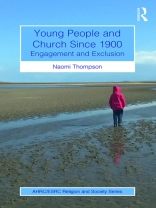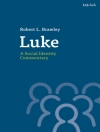When the Sunday School pioneers saw a need in their communities in the late eighteenth century, their response provoked a 200 year movement. These early Sunday Schools met a clear social need: that for basic education. By the 1960s, they faced rapid decline – a rigid institution amidst societal change. Over recent decades, Christian youth work has emerged as a response to further youth decline within churches. Many youth workers engage with young people’s self-perceived needs by delivering open-access youth provision in their local communities alongside more specifically Christian activities. Tensions emerge over whether the youth worker’s role is to serve community or church needs, with churches often emphasising the desire to see young people in services. Drawing together historical and contemporary research, Young People and Church Since 1900 identifies patterns and change in young people’s engagement with organised Christianity across time. Through this, it provides a unique analysis of the engagement and exclusion of young people in three key time periods, 1900-1910, 1955-1972, and the present day. Whilst much commentary on religious decline has focused on changes external to churches, this text draws out the internal decisions and processes that have affected the longevity of Christianity in England. This book will be of interest to researchers and scholars of young people and Christianity in the twentieth century and today, as well as youth ministry students and practitioners and those interested in youth decline in churches more widely.
Naomi Thompson
Young People and Church Since 1900 [PDF ebook]
Engagement and Exclusion
Young People and Church Since 1900 [PDF ebook]
Engagement and Exclusion
¡Compre este libro electrónico y obtenga 1 más GRATIS!
Idioma Inglés ● Formato PDF ● Páginas 206 ● ISBN 9781351623766 ● Editorial Taylor and Francis ● Publicado 2017 ● Descargable 3 veces ● Divisa EUR ● ID 5327222 ● Protección de copia Adobe DRM
Requiere lector de ebook con capacidad DRM


![Portada de Paul C. Jong: Woba waravyawe ubwa kabiri vy'ukuri n'amazi na Mpwemu? [Igisomwa gishasha casubiwemwo] Portada de Paul C. Jong: Woba waravyawe ubwa kabiri vy'ukuri n'amazi na Mpwemu? [Igisomwa gishasha casubiwemwo]](https://static.worldofdigitals.com/thumb_webp/095/9788928225095.webp)









